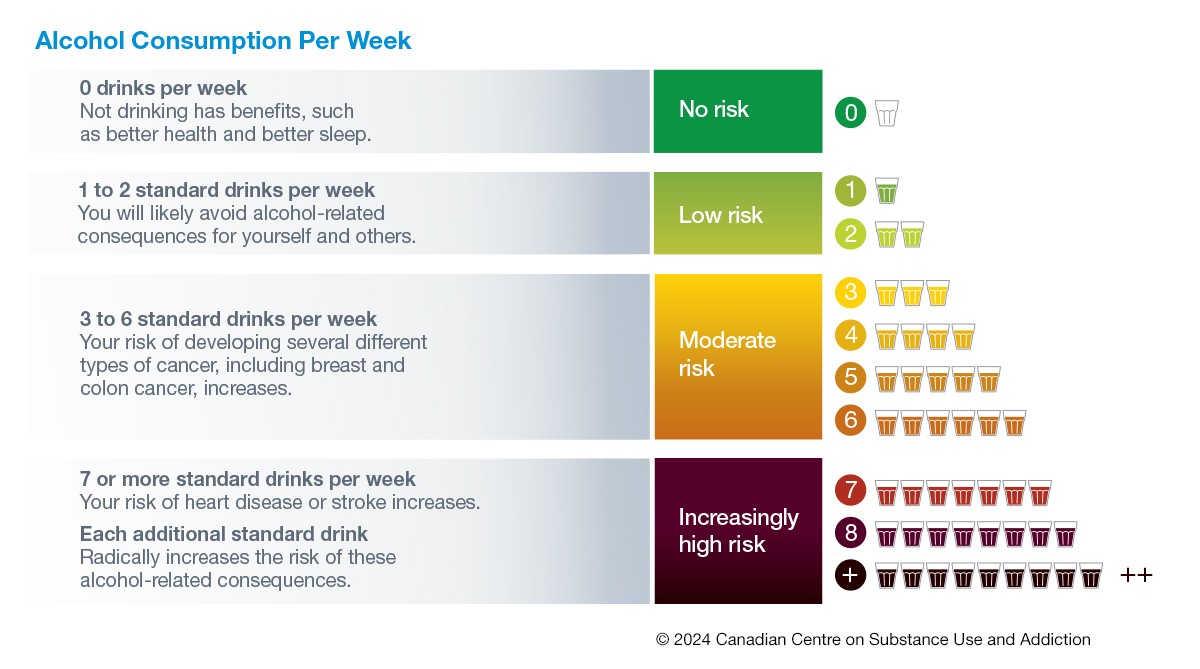
Understanding alcohol-related risks
Canada’s Guidance on Alcohol and Health provides evidence-based advice on alcohol to support people in making informed decisions about their health. The guidance is based on the latest research on alcohol-related risks.
Key points from the guidance include:
Research shows that no amount or kind of alcohol is good for your health. It doesn’t matter what kind of alcohol it is—wine, beer, cider or spirits. Drinking alcohol, even a small amount, is damaging to everyone, regardless of age, sex, gender, ethnicity, tolerance for alcohol or lifestyle. That’s why if you drink, it’s better to drink less.
There is a continuum of risk associated with weekly alcohol use:
- 0 drinks per week: Not drinking has benefits, such as better health and better sleep.
- 2 standard drinks or less per week: You are likely to avoid alcohol-related consequences for yourself or others at this level.
- 3–6 standard drinks per week: Your risk of developing several types of cancer, including breast and colon cancer, increases at this level.
- 7 standard drinks or more per week: Your risk of heart disease or stroke increases significantly at this level.
Each additional standard drink radically increases the risk of alcohol-related consequences. No matter where you are on the continuum, for your health, less alcohol is better.
Consuming more than two standard drinks per occasion is associated with an increased risk of harms.
Reducing your alcohol consumption
You can reduce your drinking in steps! Every drink counts: any reduction in alcohol use has benefits. Count how many drinks you have in a week, and set a new weekly target. These tips can help you stay on track:
- Stick to the limits you’ve set for yourself.
- Drink slowly.
- Drink lots of water.
- For every drink of alcohol, have one non-alcoholic drink.
- Choose alcohol-free or low-alcohol beverages.
- Eat before and while you’re drinking.
- Have alcohol-free weeks or do alcohol-free activities.
There are many support services at Concordia and in the community:
- Consult Health Services' addiction and substance use resource list.
- Talk a nurse or doctor at Health Services or in the community.
- Call Quebec’s substance use help and referral line to speak with a trained counsellor, 24/7. Open to everyone.
- Students: Request a mental health intake appointment.
- Staff: Concordia's Drug and Alcohol Recovery Program is available through Homeward Health.
- Concordia’s health promotion specialists can help you create a plan to set, achieve and maintain your health goals
